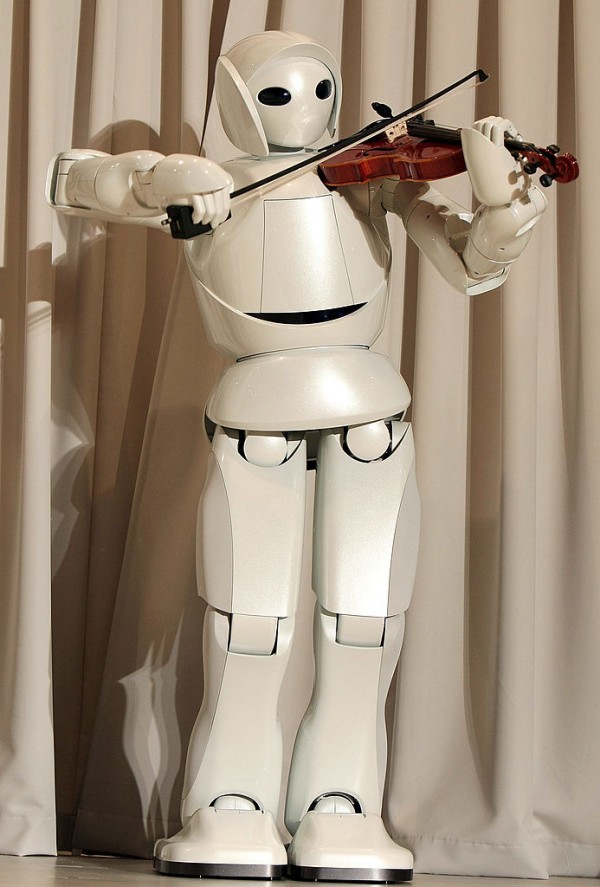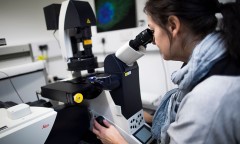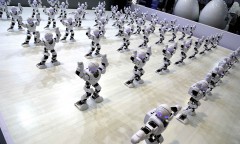By Sami Ghanmi, | September 04, 2016

Toyota's violin-playing robot plays at Universal Design Showcase on December 6,2007 in Tokyo, Japan. The robot, which has 17 joints in both arms, uses precise control to play the violin.
A year-long investigation conducted by Stanford University in the U.S. has revealed how the application of cutting-edge artificial intelligence (AI) systems could influence the lives of people living in urban cities in North America by the year 2030.
Called "Artificial Intelligence and Life in 2030", the new report is part of the One Hundred Year Study on Artificial Intelligence which focuses on eight different domains: Transportation, healthcare, education, entertainment, smart home robots, public safety and security, low-resource communities, and employment.
Like Us on Facebook
"We believe specialized AI applications will become both increasingly common and more useful by 2030, improving our economy and quality of life," said Peter Stone, a computer scientist at the University of Texas at Austin and chair of the panel of international experts. "AI technologies can be reliable and broadly beneficial," said Barbara Grosz, a computer scientist at Harvard and chair of the AI100 committee. "Being transparent about their design and deployment challenges will build trust and avert unjustified fear and suspicion."
The report reveals that in 2030, self-driving cars - including trucks, aerial vehicles, and personal robots - would be moving about in the city on their own as AI systems become more and more intelligent. "Special purpose robots" would also help people deliver packages, clean their houses and act as security guards.
In the public safety and security domain, AI systems will be used to improve camera and drone technologies for surveillance. They could also be used to assist doctors in medical procedures and surgeries and support operations in the hospital. This means certain jobs that require repetitive tasks may no longer exist in the future. However, AI may still create new types of jobs while reducing the cost of numerous goods and services.
"But this technology will also create profound challenges, affecting jobs and incomes and other issues that we should begin addressing now to ensure that the benefits of AI are broadly shared," Stone said. "Until now, most of what is known about AI comes from science fiction books and movies," Stone added. "This study provides a realistic foundation to discuss how AI technologies are likely to affect society."
-
Use of Coronavirus Pandemic Drones Raises Privacy Concerns: Drones Spread Fear, Local Officials Say

-
Coronavirus Hampers The Delivery Of Lockheed Martin F-35 Stealth Fighters For 2020

-
Instagram Speeds Up Plans to Add Account Memorialization Feature Due to COVID-19 Deaths

-
NASA: Perseverance Plans to Bring 'Mars Rock' to Earth in 2031

-
600 Dead And 3,000 In The Hospital as Iranians Believed Drinking High-Concentrations of Alcohol Can Cure The Coronavirus

-
600 Dead And 3,000 In The Hospital as Iranians Believed Drinking High-Concentrations of Alcohol Can Cure The Coronavirus

-
COVID-19: Doctors, Nurses Use Virtual Reality to Learn New Skills in Treating Coronavirus Patients









